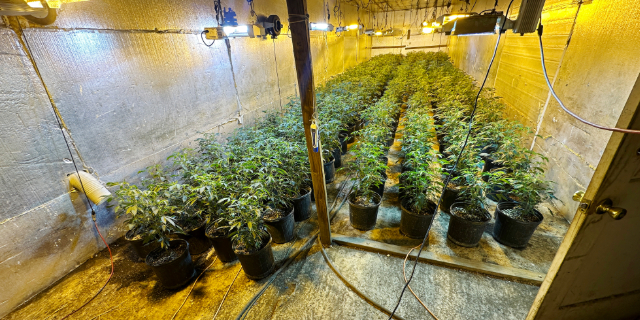ONE PAYCHECK AWAY: Being on the streets is criminalized and lonesome
Published 5:45 am Sunday, November 5, 2023

- Marcelle, 61.
People think the reason someone becomes homeless is due to drug use, but research shows something else
Trending
If you ask most people what the overwhelming cause of rising homelessness is, they are likely to say “drug addiction” or “mental illness.” It’s a common perception in Oregon and across the West Coast.
But it’s a myth.
Findings from research both at a state, West Coast and local level show something different. In a sample of roughly 1,000 individuals in Southern Oregon, the largest survey to date, roughly half aren’t addicted, nor do they use illegal drugs regularly.
Trending
In a recent California survey, the results are similar: 50% have not used illegal substances in the past six months.
It’s fair to say illegal drug use and mental instability appear to be less prominent in housed people, but that doesn’t mean every person who is unhoused is using drugs or is mentally unstable, and it also doesn’t mean all housed people are sober or mentally fit.
The figures have steadily changed over the past decade as homelessness has increased, up by 134%, according to an estimate by Oregon Gov. Tina Kotek. What we find now is a greater number of unhoused people are living rough due to economic insecurity, or in the plainest of terms, poverty.
Perhaps the saddest reality is that homeless people don’t often become homeless due to drug use, but instead, once they are displaced and traumatized, they may begin to use substances. Of those who did use drugs in the past six months on a regular basis, 40% started after becoming homeless, not before.
These individuals admit to using methamphetamine or opioids to protect themselves at night, “I walk around all night and keep my hands on my stuff. If I don’t, I’ll get jumped or have my stuff taken.” I was told this by a young man of color who walks the railroad tracks in Southern Oregon and shelters in a secret location during the day. He wouldn’t tell me where for fear of being moved on or arrested by police.
People also reported selling prescription drugs for food and occasional shelter while using street drugs instead to cope with the pain they regularly feel from living rough or to cope with depression and the trauma of being homeless. Many are disabled from injury or illness, which is how they lost income and became homeless in the first place. It’s not that using drugs made them homeless; it’s that once they become homeless, it’s a way of surviving the experience.
In our work at AllCare Health and through my personal work as a researcher, it’s fair to say that the longer someone is unhoused and the worse their living conditions become, the more likely they are to use drugs as a coping mechanism after becoming homeless. Being on the streets is criminalized and lonesome. This is a marginalized group which, as a rule, it’s acceptable to vilify.
If we can begin to understand that the chief causes of homelessness are illness, aging and poverty, perhaps policymakers can do better in solving the actual problem, which is not the people experiencing homelessness but the realities of what landed them there.
A dire lack of housing at any price but especially on the low end, and the realities of not getting by or being one paycheck away from homelessness, continues to render more and more people living rough on the streets. When you’re at the bottom rung of society earning low wages, it doesn’t take much to fall into the nightmare of homelessness.
Those of us working in the social determinants of health know that housing is a primary deterrent for avoiding drug use. We know that programs which offer long-term housing and supports have shown that even those who have used drugs have a good chance of remaining housed once established.
The bottom line is regardless of an individual’s experiences around drug use, the best investment we can make is to prioritize getting unhoused people into safe and stable housing. That’s how we can begin to solve the crisis we currently face — because homelessness is not the product of failed people but a failed system.









